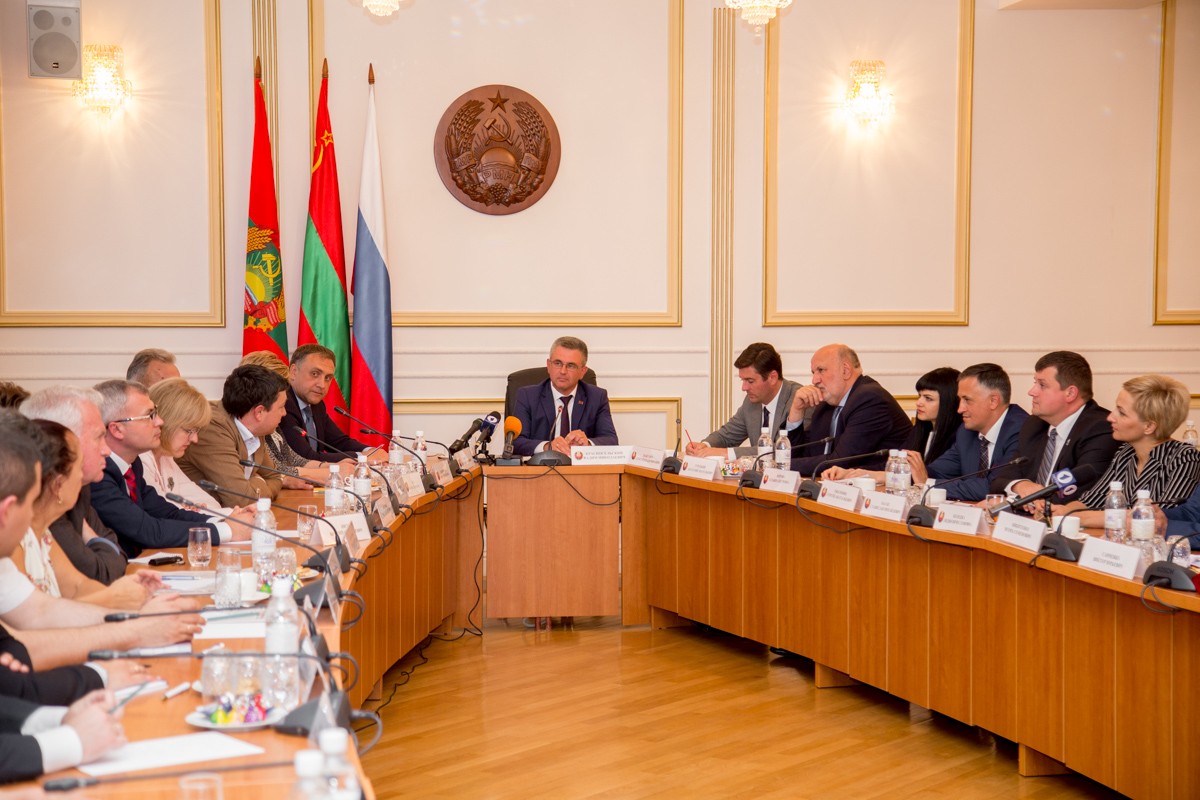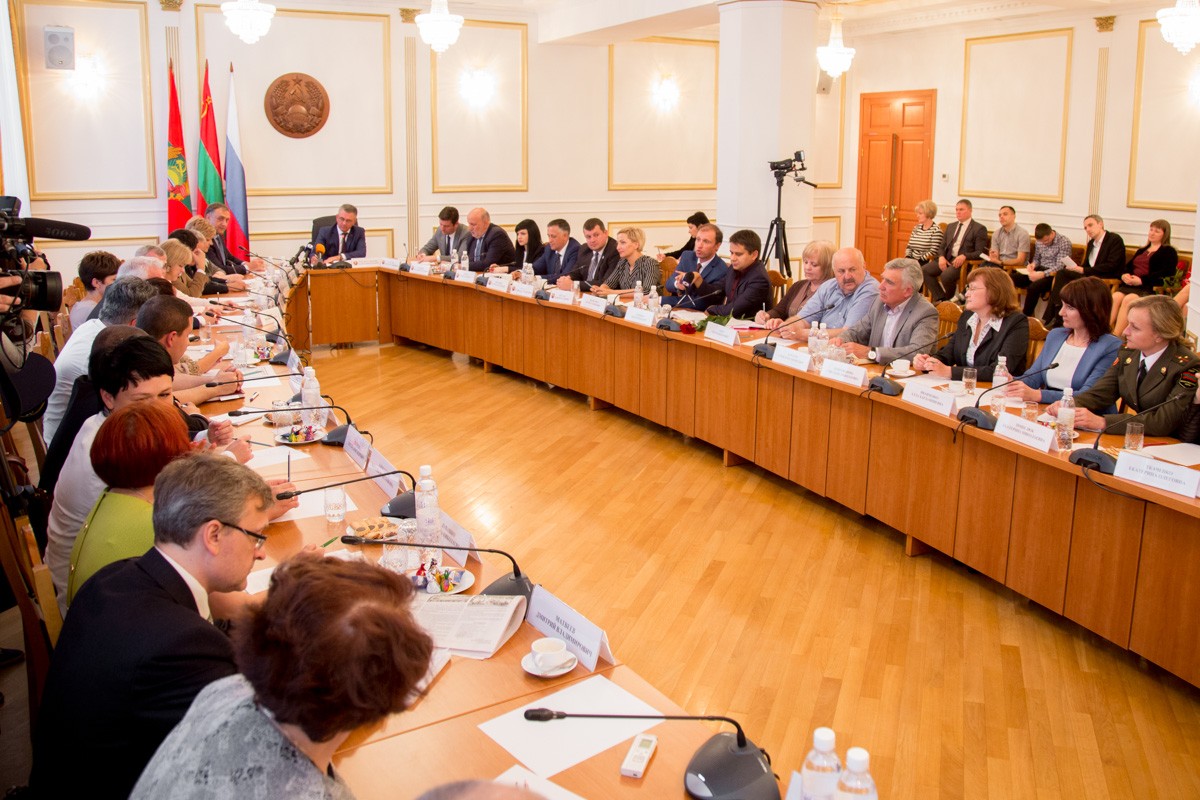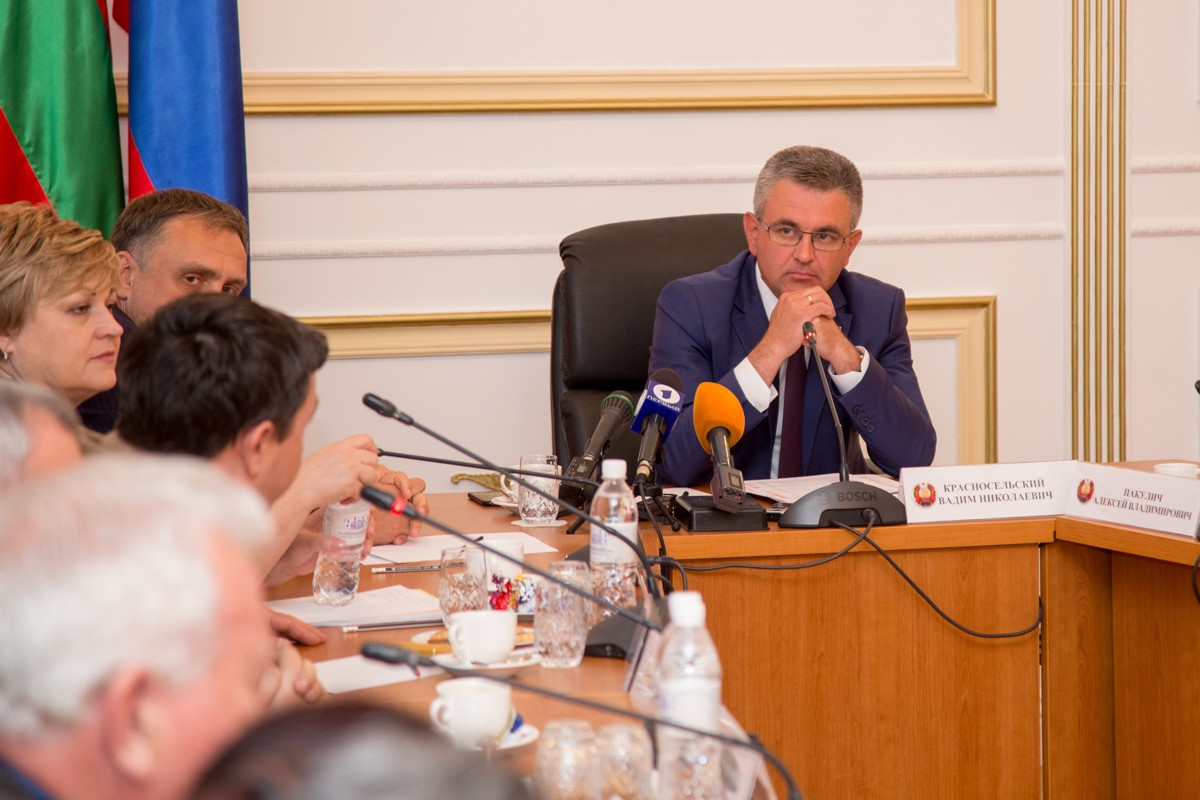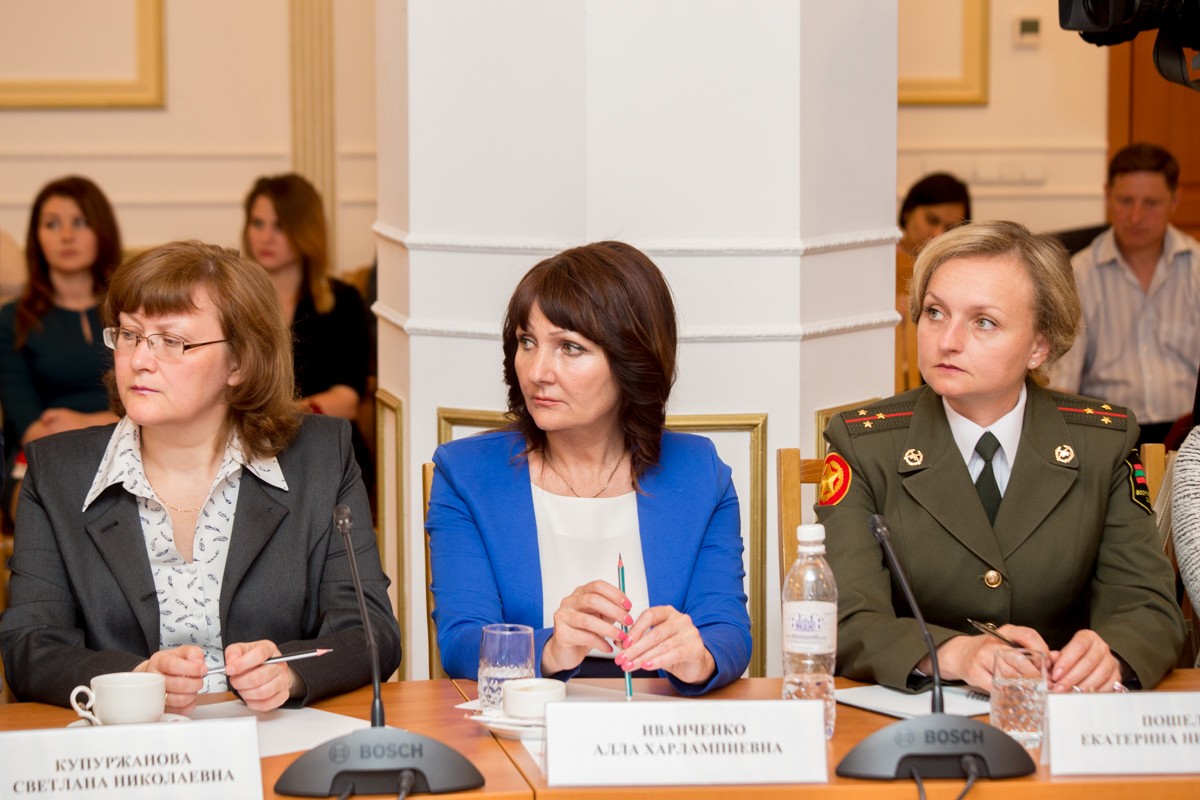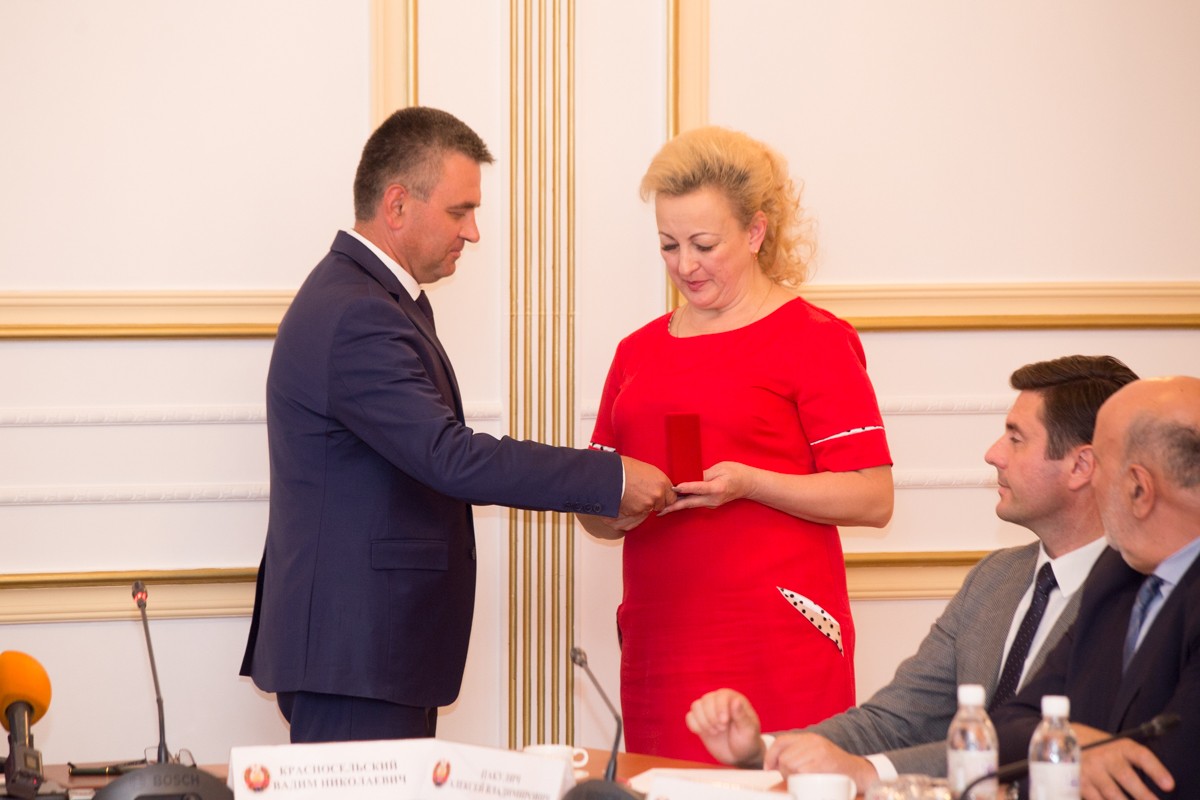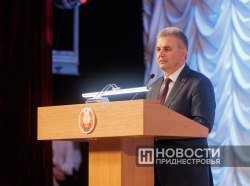Tiraspol, 15 May. /Novosti Pridnestrovya/. President Vadim Krasnoselsky held a meeting with journalists. Journalists from state-run and independent media, as well as government and Supreme Council members, were invited to take part in it. Cutting short the introduction and noting that journalists are a mirror of society, the president invited them to ask questions.
And the first question that was asked was about freedom of speech. The editor-in-chief of First Pridnestrovian TV Channel wanted to know if it exists in the country and what the president himself puts into this concept.
Analyzing the situation in various states, Vadim Krasnoselsky noted that Pridnestrovie is a democratic state which has freedom of speech.
"But what does freedom of speech consist of? The absence of external banned sources, especially Internet resources. Let me remind you that until 2017, we have many resources on the Internet that had been blocked, and in 2017 they were unblocked... We have commercial media outlets, commercial television to which none of those present imposes their opinion; the same refers to newspapers, printed publications. There are state media outlets, to which neither the president nor the founders dictate what to write," he argued.
The head of state also stressed that journalists are not subject to criminal prosecution for their views in Pridnestrovie.
Another question asked by the editor-in-chief of television channel TSV Igor Avrenev concerned the country's economy. He asked why amid optimistic economic reports ordinary Pridnestrovians do not feel those improvements.
The head of state recalled a catastrophic budget deficit the country was faced with a year ago when only half of the spending was covered by proceeds, and a serious reduction of the deficit today. Many enterprises (MMZ, Dnestrenergo, Biokhim, etc.) which incurred losses in 2016 became profitable in 2017, which, the president said, was a direct result of effective government policies.
Now one of the tasks in the economy is to balance exports to the Customs Union (12% of total external sales) with sales to European Union (37%).
"Citizens will feel the improvement only if we balance our budget in terms of its self-sufficiency, that is, if we eliminate its deficit. Then they will feel it in the form of increased salaries and pensions," the president said, recalling that 29,000 pensioners whose pensions are below the subsistence level will receive additional allowances from the state.
The chief editor of the newspaper "Man and His rights" Nikolay Buchatsky asked about new jobs. Calling for their creation as soon as possible, he complained about the outflow of Pridnestrovians from the republic.
The head of state parried, citing the figures: judging by migration statistics, the number of people who came to Pridnestrovie exceded the number of those who left for the first time in the country's history. And the difference is several thousand people.
The number of new jobs also increased by a few thousand. However, this is not as simple as it may seem. New enterprises need serious investment, which the country's leadership has tried to attract. Vadim Krsnoselsky stressed Pridnestrovie should become attractive for big capital to come.
"Right now, I am inviting all ambassadors of the European Union and the Customs Union to visit the Pridnestrovian economic forum with a view to getting acquainted with the economy of our state, its legislation. We should be interesting to the investor ... so that we are not looked upon as a rogue country where property rights are not respected, where everything is classified, etc. This is a great job - gaining trust, which you can't do without, and the creation of new jobs depends on it," said Vadim Krasnoselsky.
The president also recalled the other side of the issue - the acute shortage of workers and vacancies at enterprises, as well as the dual training system which had already contributed to solving the problem.
Foreign policy. It was also discussed at the meeting in the context of the achievements that our diplomats made in negotiations with their Moldovan partners. This includes the apostille verification of PSU diplomas and the opening of a bridge across the Dniester in the area of Bychok and Gura-Bikului villages and neutral license plates.

